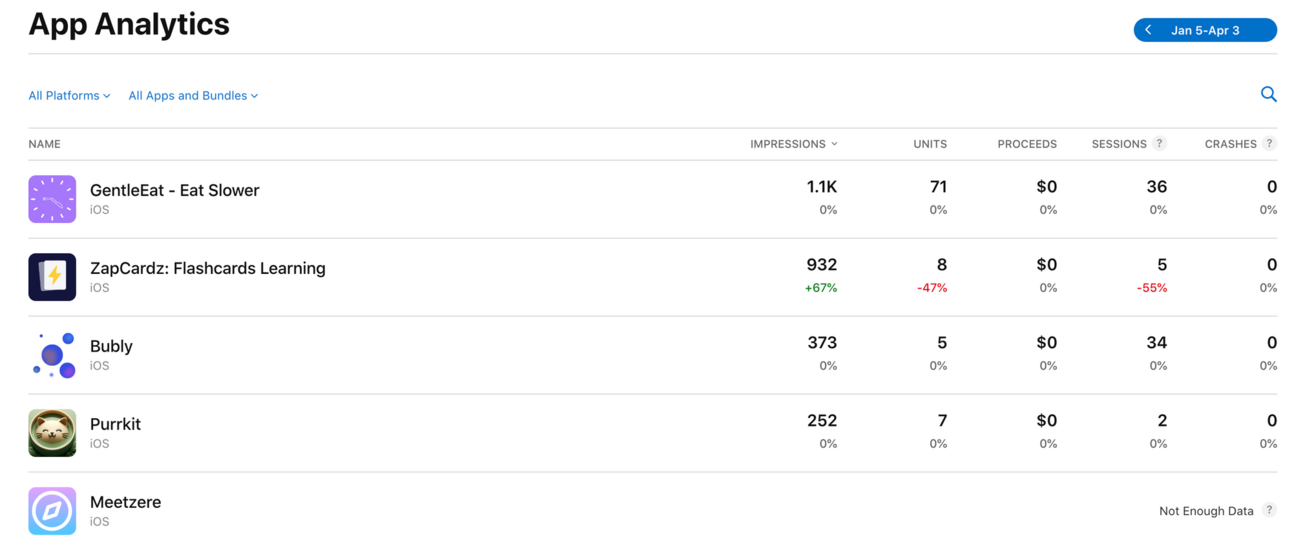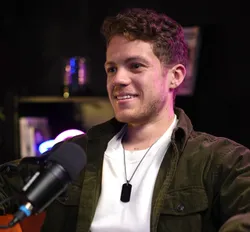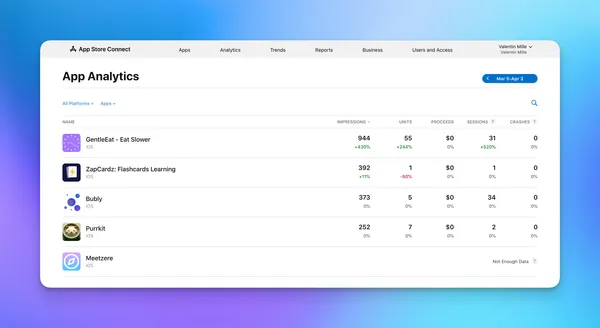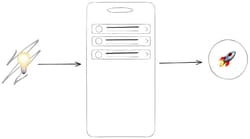On this page
In March 2024, I developed 1 iOS app per week for 4 weeks.
The goal? Limit the time it takes to ship an MVP and share it with people along the way.
The challenge success was measured by the experience gained, the mindset, and taking a first step in indie development.
Here are the challenge takeaways and what I will do if I have to start over:
I am spending the weekend with some entrepreneurial friends at Saints in France. This is the opportunity to share knowledge and feedback about everyone's business. Some great ideas have already emerged from those events. Also, meeting new people is always a pleasure.
I am still developing ZapCardz, an app to help you generate flashcards to learn a new language or anything you want. Also, I have been working on a product for the iOS community, stay tuned ✌️
40% code and 60% marketing
1 app/week was interesting. In terms of development, I learned new frameworks and tools. But I spend too much time coding.
Each app was developed in an entire week. However, no marketing was made to promote the app.
GentleEat had some promotion after its approval, and the results talk for themselves:

Among all the apps, GentleEat performed the best. It is difficult to say the exact reason, but sharing it on social media with communities and friends helped.
Other apps didn't have the same success because there wasn't a pushy promotion.
Moral of the story? Code 40% of the time and then spend the rest on marketing, promotion, and communication.
Not having a good onboarding
Some apps didn't have an onboarding. An onboarding introduces the app to a user to give it an idea of what problem it solves. It is like seeing the gift paper before opening it.
A great onboarding strategy can convert a one-time user to a recurring one by providing a unique introduction experience.
If I had to start over, I would take the time to create simple but efficient onboardings
Still trying too much
The app was made for one thing: a single-core feature. I already talked about a framework for developing one feature.
Sometimes, I was still too distracted to focus on one feature. Instead, I spent time on details that wouldn't matter to the users (like an animation or a specific UI polishment). It was a loss of time.
If I had to start over, I would ship a MVP that is working nothing more.
Starting Without a Boilerplate
Not having a boilerplate was an error. A Boilerplate is a project that already contains code that will be repeated between different projects.
Basically, development doesn't start with a blank page, which makes the creative process easier and allows spending less time coding to prepare an app promotion. This is a must-have.
Hours could have been saved thanks to that.
If I had to start over, I would have prepared a boilerplate before starting the challenge.



